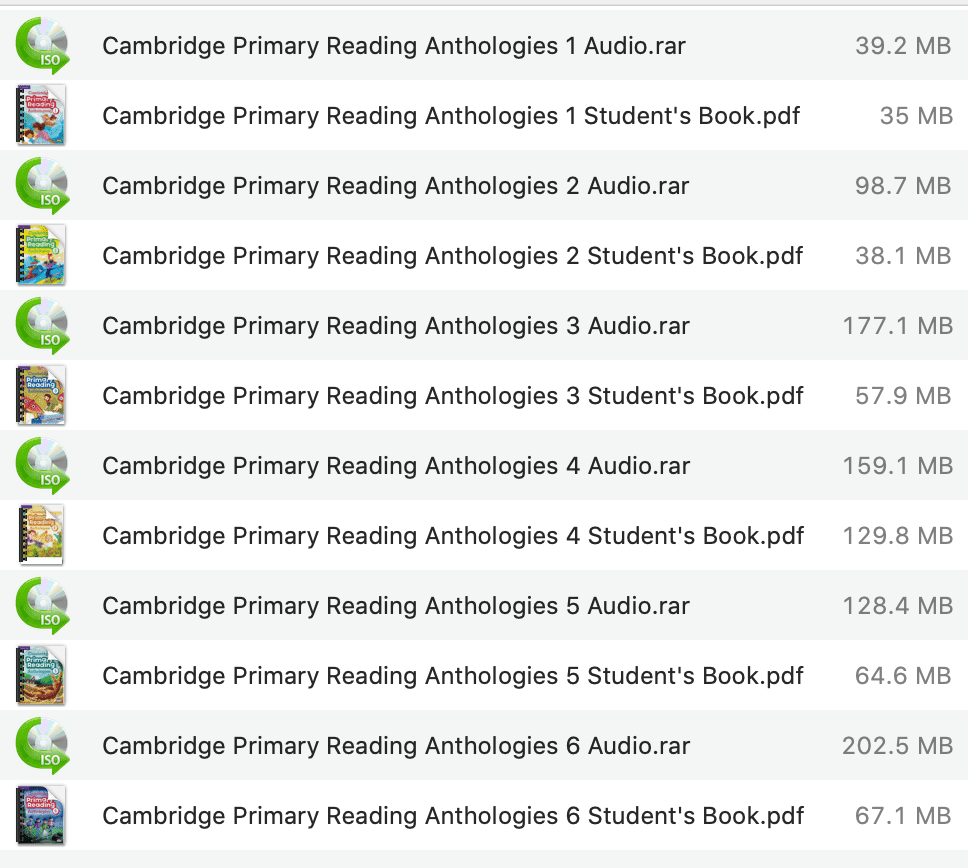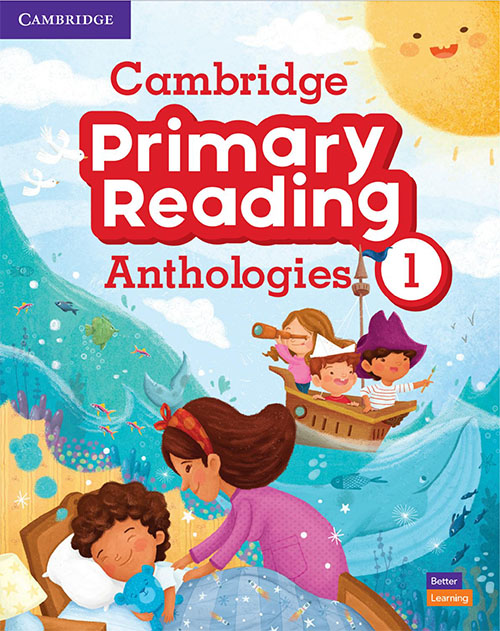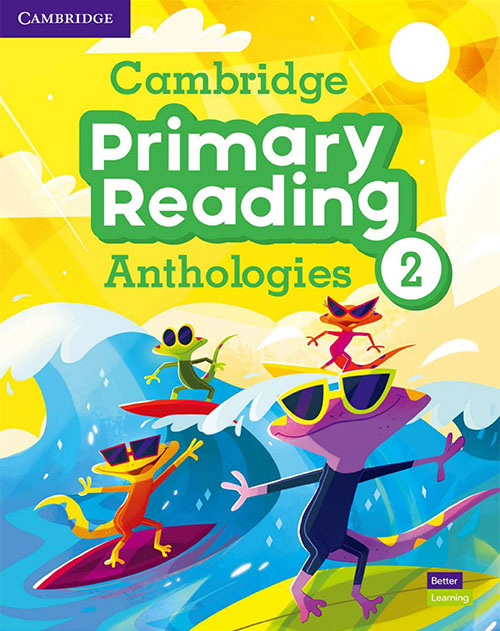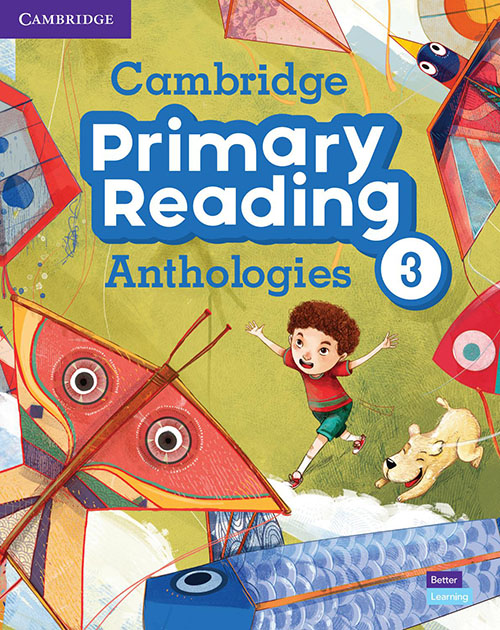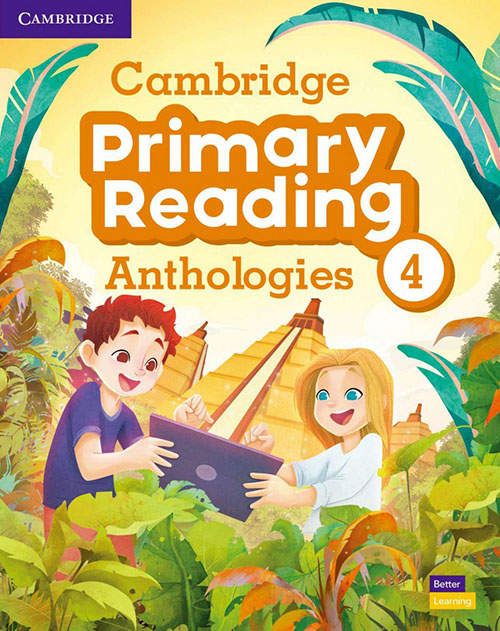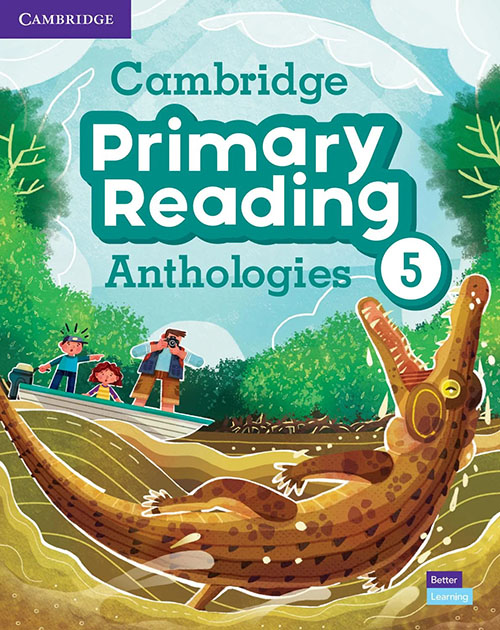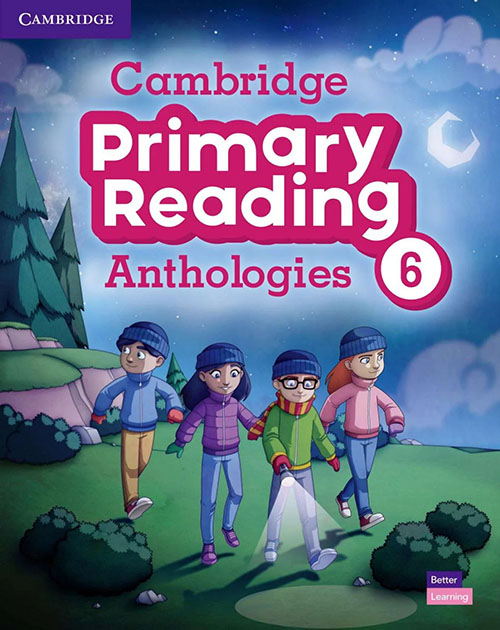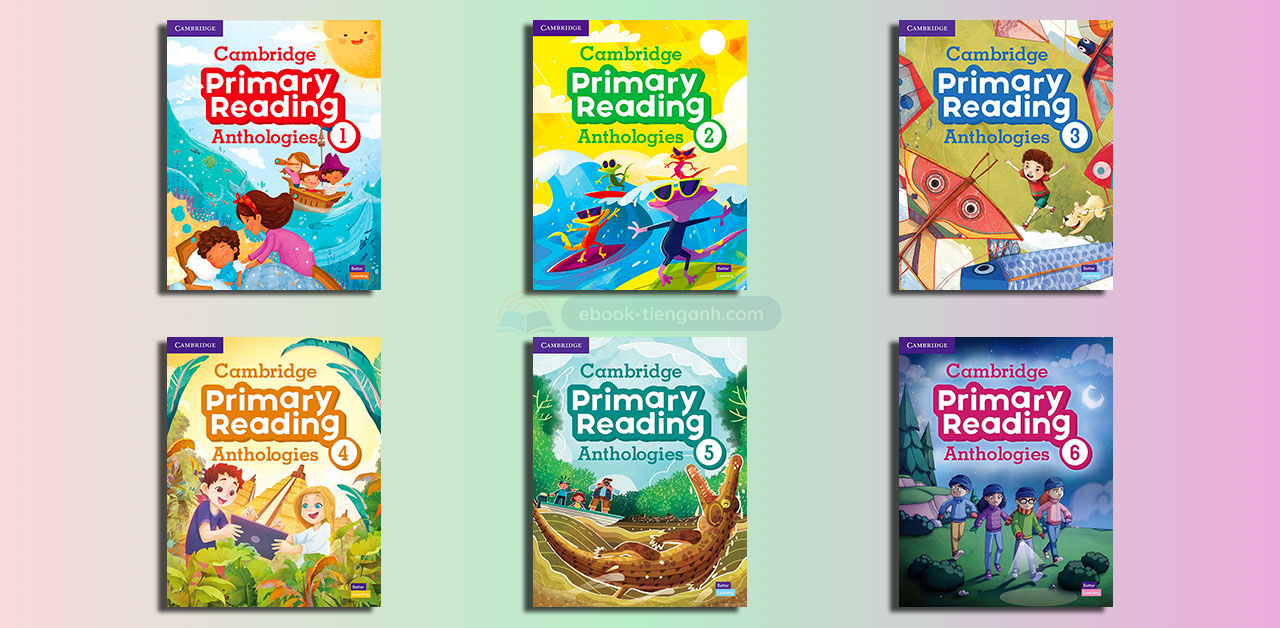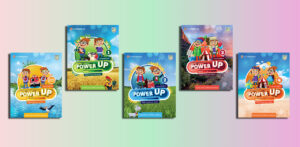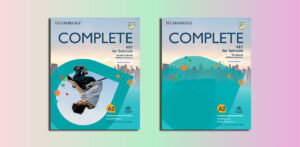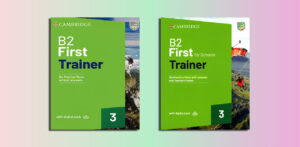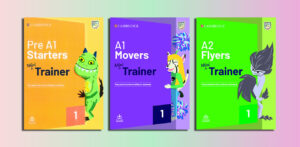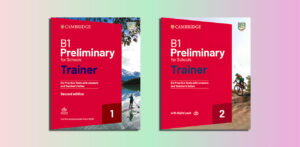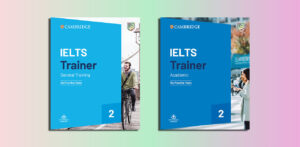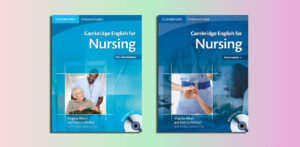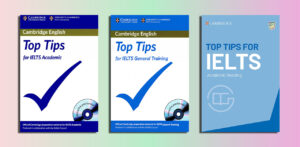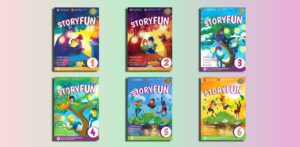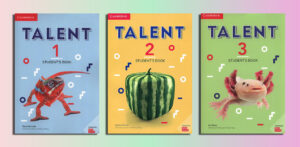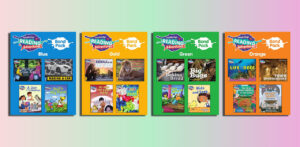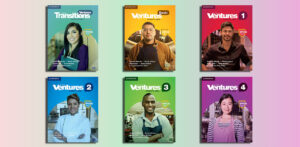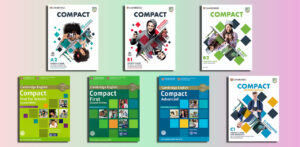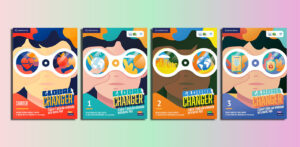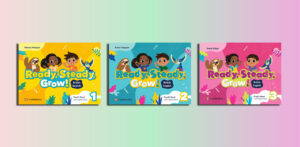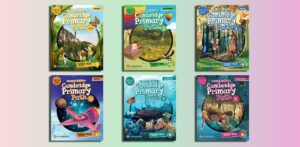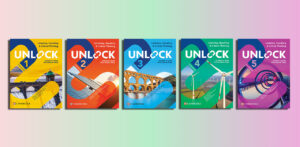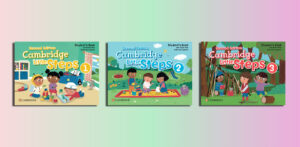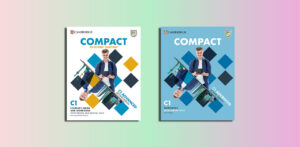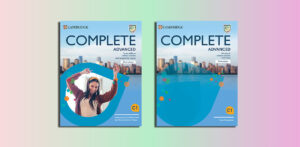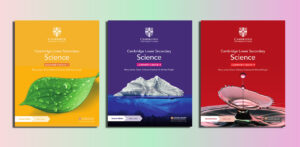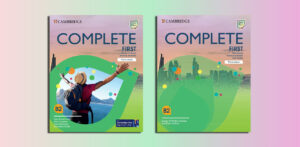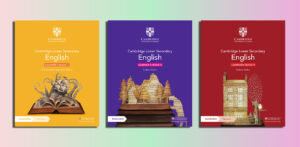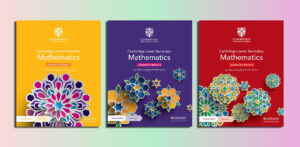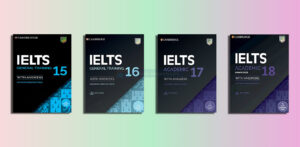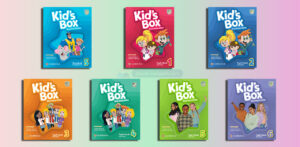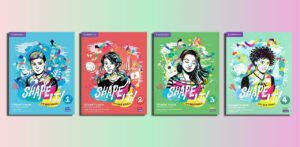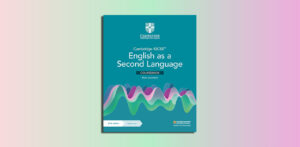Cambridge Primary Reading Anthologies (Pdf Audio)
Level 1
Cambridge Primary Reading Anthologies 1 Audio.rar
Cambridge Primary Reading Anthologies 1 Student’s Book.pdf – Sample: Click
Level 2
Cambridge Primary Reading Anthologies 2 Audio.rar
Cambridge Primary Reading Anthologies 2 Student’s Book.pdf – Sample: Click
Level 3
Cambridge Primary Reading Anthologies 3 Audio.rar
Cambridge Primary Reading Anthologies 3 Student’s Book.pdf – Sample: Click
Level 4
Cambridge Primary Reading Anthologies 4 Audio.rar
Cambridge Primary Reading Anthologies 4 Student’s Book.pdf – Sample: Click
Level 5
Cambridge Primary Reading Anthologies 5 Audio.rar
Cambridge Primary Reading Anthologies 5 Student’s Book.pdf – Sample: Click
Level 6
Cambridge Primary Reading Anthologies 6 Audio.rar
Cambridge Primary Reading Anthologies 6 Student’s Book.pdf – Sample: Click
✅ Get Cambridge Primary Reading Anthologies: $5 / level; $25 / all 6 levels
๏ Other payment methods: Click here
Overview of the “Cambridge Primary Reading Anthologies”
Contents
- 1 Overview of the “Cambridge Primary Reading Anthologies”
- 2 Who is suitable for ‘Cambridge Primary Reading Anthologies’?
- 3 The benefits of ‘Cambridge Primary Reading Anthologies’
- 4 Effective teaching and learning strategies for ‘Cambridge Primary Reading Anthologies’
- 5 Comprehensive Reading Resources for Young Learners: Engaging Alternatives to Cambridge Primary Reading Anthologies
| ✅ Coursebook: | Cambridge Primary Reading Anthologies |
| ✅ English type: | International English |
| ✅ Levels: | Pre A1, A1, A2, B1, B1+ |
| ✅ Publisher: | Cambridge University Press |
| ✅ For: | Primary School |
| ✅ Skill: | Reading |
| ✅ Publication year: | 2020 |
The “Cambridge Primary Reading Anthologies” series offers a robust approach to enhancing reading skills among young learners, spanning six levels of extensive reading. This series is meticulously designed to cater to students who are in the process of learning English, aiming to bolster their reading proficiency through engaging with a diverse array of genres. Here’s a breakdown of what it offers:
Key Features
- Extensive Genre Range: Students are exposed to a variety of reading materials that include fiction from award-winning authors and illustrators, as well as thought-provoking nonfiction. This diversity not only enriches the learning experience but also cultivates a deep appreciation for reading across different genres.
- Inquiry-Based Approach: The series adopts an inquiry-based method where students explore texts linked to “Big Questions”. This approach encourages critical thinking and deeper understanding of the texts, enabling students to connect with the material on a more profound level.
- Activities and Teaching Ideas: Each book in the series comes packed with activities and practical teaching suggestions. These are designed to engage students actively with the texts, enhance their literacy skills, and foster a love for reading.
- Aligned with CEFR: The texts and activities are curated based on research and are aligned with the Common European Framework of Reference for Languages (CEFR), ensuring that students make real progress in their reading skills and language proficiency.
- Authentic Reading Experiences: By incorporating plays, quizzes, and ‘how-to’ texts alongside traditional narratives and nonfiction, the series brings learners closer to authentic reading experiences. This variety helps students explore and enjoy new genres, broadening their understanding and appreciation of different types of texts.
- Building Confidence: A core aim of the Cambridge Primary Reading Anthologies is to equip students with the confidence to tackle any text. Through consistent practice and exposure to various reading materials, students learn to navigate and comprehend texts with ease, setting a solid foundation for future reading endeavors.
Series Overview
- Target Audience: Young learners at primary level, especially those learning English as an additional language.
- Levels: Six, catering to a broad spectrum of reading abilities and age groups.
- Content: A mix of award-winning fiction and insightful nonfiction, coupled with engaging activities that support literacy development.
- Objective: To improve reading proficiency, expand vocabulary, and develop a lifelong love for reading through exposure to diverse genres and cultures.
In summary, the “Cambridge Primary Reading Anthologies” is designed to be an engaging, comprehensive reading tool that fosters literacy, critical thinking, and a love for reading among primary school students. Its structured approach, focusing on inquiry and a wide range of genres, ensures that learners are not only improving their English language skills but also gaining confidence and enjoyment in their reading journey.
Cambridge Primary Reading Anthologies 1 Student’s Book
Who is suitable for ‘Cambridge Primary Reading Anthologies’?
The “Cambridge Primary Reading Anthologies” series is ideally suited for young learners at the primary education level who are learning English. This series is specifically designed to cater to a diverse audience with varying levels of reading proficiency and English language skills. Here’s who would find it most suitable:
English Language Learners
- Students who are learning English as an additional language (EAL) will find this series particularly beneficial. The texts and activities are designed to support language acquisition, vocabulary expansion, and literacy development in a context that makes learning engaging and relevant.
Young Readers Across Different Proficiency Levels
- With six levels of reading materials, the series can accommodate young readers at various stages of their learning journey, from beginners to more advanced learners. This tiered approach allows students to progress at their own pace, continually challenged and supported as their reading skills develop.
Students Interested in Diverse Genres
- Children who are curious about different kinds of stories and non-fiction content will find the anthology appealing. The series exposes students to a wide range of genres, including fiction from award-winning authors, plays, quizzes, ‘how-to’ texts, and thought-provoking non-fiction. This variety helps to cultivate an appreciation for reading and broadens their understanding of the world.
Learners Preparing for Higher-Level English Programs
- Students who are preparing to enter or already participating in high-level English programs for primary schools, such as the Cambridge Primary Path, will find the reading anthologies a valuable resource. The series is designed to complement these programs by strengthening the students’ reading and comprehension skills.
Students and Educators Seeking CEFR Alignment
- For educators and learners looking for materials that are aligned with the Common European Framework of Reference for Languages (CEFR), this series offers curated texts and activities based on research and aligned with these standards. This ensures that the learning materials are of high quality and can support real progress in English language proficiency.
In essence, the “Cambridge Primary Reading Anthologies” series is suitable for a broad spectrum of young learners who are on their journey to becoming confident, proficient readers in English. It’s designed to be both educational and enjoyable, with a strong emphasis on fostering a lifelong love for reading through exposure to a diverse range of engaging content.
Cambridge Primary Reading Anthologies 2 Student’s Book
The benefits of ‘Cambridge Primary Reading Anthologies’
The “Cambridge Primary Reading Anthologies” offers a comprehensive array of benefits aimed at enhancing the reading skills and overall literacy of young learners. These benefits are crafted to support the development of confident, proficient readers who not only excel academically but also develop a lifelong passion for reading. Here are some of the key advantages:
Enhanced Reading Proficiency
- The series is meticulously structured across six levels, enabling students to gradually enhance their reading skills. By engaging with a wide range of texts, students improve their ability to decode, comprehend, and analyze various forms of written communication, laying a solid foundation for academic success.
Broadened Vocabulary and Language Skills
- Exposure to diverse genres, including award-winning fiction and thought-provoking non-fiction, helps students expand their vocabulary and understand the nuances of the English language. This enrichment of language skills is vital for students learning English as an additional language, facilitating better communication and comprehension skills.
Inquiry-Based Learning
- The inquiry-based approach encourages students to engage with big questions and explore texts in a more meaningful way. This method fosters critical thinking and problem-solving skills, as students learn to question, analyze, and draw conclusions based on their reading.
Exposure to Diverse Cultures and Perspectives
- Through stories and non-fiction from around the world, students gain insights into different cultures, perspectives, and experiences. This global exposure nurtures empathy and understanding, encouraging students to appreciate diversity and develop a more inclusive worldview.
Increased Engagement and Motivation
- Activities and practical teaching ideas included in the series are designed to make reading fun and engaging. By actively participating in quizzes, discussions, and projects related to the texts, students become more motivated to read and explore new genres, fostering a love for reading that can last a lifetime.
Confidence in Reading
- One of the primary goals of the “Cambridge Primary Reading Anthologies” is to equip students with the confidence to tackle any text. This confidence is built through consistent practice, supportive activities, and gradual exposure to more complex materials, helping students feel prepared for any reading challenge.
Alignment with CEFR Standards
- The series’ alignment with the Common European Framework of Reference for Languages (CEFR) ensures that the learning materials meet high-quality standards and are effective in supporting language proficiency. This alignment also provides educators and students with a clear framework for assessing progress and setting learning objectives.
Development of Lifelong Reading Habits
- By instilling a love for reading and providing students with the tools to explore and enjoy a variety of texts, the “Cambridge Primary Reading Anthologies” series helps cultivate lifelong reading habits. These habits not only benefit academic achievement but also enhance personal growth, imagination, and creativity.
In summary, the “Cambridge Primary Reading Anthologies” series offers a holistic approach to reading education, providing students with the skills, confidence, and motivation to become proficient readers and lifelong learners.
Cambridge Primary Reading Anthologies 3 Student’s Book
Effective teaching and learning strategies for ‘Cambridge Primary Reading Anthologies’
Integrating “Cambridge Primary Reading Anthologies” into the classroom involves a blend of strategies that maximize the effectiveness of its extensive reading series. These strategies not only enhance reading skills but also engage students in meaningful learning experiences. Here are some effective teaching and learning strategies tailored for this series:
1. Incorporate Inquiry-Based Learning
- Encourage students to explore the “Big Questions” tied to each text. This approach fosters curiosity and critical thinking, allowing students to delve deeper into the themes and ideas presented. Facilitate discussions, debates, and research projects that stem from these questions, making the reading material more relevant and stimulating.
2. Use a Multimodal Approach
- Integrate various forms of media and resources to complement the reading material. Audio recordings, videos, and digital platforms can enhance understanding and engagement, especially for visual and auditory learners. This multimodal approach can help bring the content to life, providing different perspectives and enriching the learning experience.
3. Differentiate Instruction
- Recognize the diverse learning needs and proficiency levels within your classroom. Tailor activities and discussions to suit different abilities, offering more support or challenge as needed. This might include varying the complexity of questions, providing additional vocabulary support, or adapting activities to ensure all students can participate fully and make progress.
4. Promote Interactive Reading
- Encourage students to interact with the texts through annotations, journal entries, and thought maps. These activities can help students process and retain information, clarify their thoughts, and connect personally with the material. Interactive reading strategies also support the development of analytical and comprehension skills.
5. Facilitate Group Work and Collaboration
- Group activities can enhance understanding and foster a sense of community among students. Collaborative projects, peer discussions, and group presentations based on the anthology’s texts encourage students to share insights and learn from each other. This collaboration can lead to a deeper understanding of the material and improve communication skills.
Cambridge Primary Reading Anthologies 4 Student’s Book
6. Incorporate Creative and Reflective Assignments
- Beyond traditional comprehension questions, include creative and reflective assignments that allow students to express their understanding and perspectives in diverse ways. This could include creative writing, drawing, role-playing, or digital storytelling, enabling students to use their imagination and make personal connections with the texts.
7. Connect Reading to Real Life
- Make the reading material relevant to students’ lives by drawing connections to current events, cultural phenomena, or personal experiences. This relevance helps students see the value and applicability of their reading, enhancing motivation and engagement.
8. Utilize Formative Assessment
- Regularly assess students’ understanding, skills, and attitudes towards reading in a variety of informal and formal ways. Formative assessments can guide instruction, provide feedback to students, and help you adjust your teaching strategies to meet learners’ needs.
9. Encourage Extensive Reading
- Foster a culture of reading for pleasure by providing time and space for students to explore texts of their choice within the anthology series and beyond. Extensive reading helps improve fluency, vocabulary, and overall language proficiency, as well as instilling a love for reading.
10. Engage Parents and Caregivers
- Involve parents and caregivers in the reading process by sharing strategies for supporting reading at home, recommending texts from the series for family reading time, and organizing events that showcase students’ work and progress.
By employing these strategies, educators can maximize the educational impact of the “Cambridge Primary Reading Anthologies,” creating a dynamic and supportive learning environment that promotes literacy, critical thinking, and a lifelong love of reading.
Cambridge Primary Reading Anthologies 5 Student’s Book
Comprehensive Reading Resources for Young Learners: Engaging Alternatives to Cambridge Primary Reading Anthologies
For learners looking for alternatives to the “Cambridge Primary Reading Anthologies,” which are designed to enrich primary students’ reading skills through a diverse collection of texts, several educational series offer a similar mix of engaging content and reading development for young learners. Here are some notable series that provide comprehensive reading practice and enrichment:
- “Oxford Reading Tree” by Oxford University Press: A well-established series that offers a rich library of books for children at various reading levels, featuring engaging stories and characters that support reading development from early phonics to richer, more complex narratives.
- “Collins Big Cat” by Collins Education: A guided reading series that provides a wide range of fiction and non-fiction books, organized by reading levels. It includes notes for teachers and parents to support children’s reading development.
- “Project X” by Oxford University Press: Tailored for reluctant readers, especially boys, this series engages young learners with exciting themes, characters, and adventures, while systematically developing their reading skills.
- “Rigby Star” by Pearson Education: Offers a collection of graded readers that include both fiction and non-fiction texts. The series supports literacy learning for primary-aged children with carefully leveled books to help build reading confidence and success.
- “Reading Explorers” by John Murray Learning: A themed series designed to develop children’s comprehension, inference, and reading for information skills through a variety of texts and interactive activities.
- “PM Collection” by Nelson Thornes (Cengage Learning): Features over 1000 carefully leveled fiction and non-fiction books, supporting learners from the early stages of reading to fluent reading through engaging stories and informative texts.
- “TreeTops” by Oxford University Press: Aimed at older primary school students, this series offers a rich selection of chapter books across a range of genres, designed to challenge and inspire keen readers and develop their comprehension and analytical skills.
- “Bug Club” by Pearson Education: A comprehensive reading program that combines highly engaging books with interactive online reading activities to help develop young readers’ skills, suitable for use at school and home.
- “National Geographic Young Explorers” by National Geographic Learning: A magazine designed for young learners, offering a variety of engaging non-fiction content that promotes reading for information and pleasure, while expanding knowledge of the world.
- “Reading A-Z” (Online Resource): An extensive online library offering a wide range of leveled reading resources, including fiction and non-fiction texts, designed to develop comprehension, fluency, and critical thinking skills.
Cambridge Primary Reading Anthologies 6 Student’s Book
- “Usborne Reading Programme” by Usborne Publishing: A comprehensive series that includes fiction and non-fiction titles, carefully graded into levels to support readers from beginner to confident independent reading.
- “Heinemann Guided Readers” by Heinemann: A classic series of graded readers, offering a mix of original and adapted fiction and non-fiction texts, designed to encourage reading for pleasure and learning.
- “Oxford Reading Buddy” by Oxford University Press: A digital reading service that offers coaching eBooks and quizzes to support reading development, with a focus on comprehension and fostering a love for reading.
- “Scholastic Discover More” by Scholastic: Emphasizes non-fiction reading with books that cover a wide range of subjects, from animals and science to history and space, designed to engage curious minds and support reading across the curriculum.
- “Sunshine Classics” by Wright Group/McGraw-Hill: Features a collection of leveled stories that span a wide range of genres and themes, aimed at developing literacy skills and a love for reading in primary-aged students.
- “Lerner Digital e-Books” by Lerner Publishing Group: Offers a wide selection of fiction and non-fiction digital books, supporting diverse reading interests and levels, and includes features like audio narration and interactive activities.
These alternatives offer robust preparation and enrichment for young learners, aiming to cultivate a love for reading and strengthen their reading comprehension and analysis skills. They provide a mix of fiction and non-fiction texts, catering to diverse interests and reading levels, ensuring that young readers find engaging and suitable material to support their literacy development.

